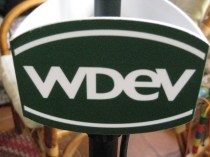Included in the state budget passed this week by the New York legislature is a provision that requires online retailers, including Amazon.com, to collect state and local sales taxes.
Independent booksellers and other retailers fought hard for the measure’s passage, which eliminates a long-standing bias in tax policy. For more than a decade, local retailers have had to tack an extra 8 percent on to every sale while competing against a formidable rival””Amazon.com””that did not have to collect this tax.
“From the beginning, all we have asked for is an even playing field so that all retailers get the same treatment from New York,” said Oren Teicher of the American Booksellers Association (ABA). “This has never been a case of enacting a new tax; rather, we have simply called for the equitable enforcement of existing tax law.”
The provision’s passage is the culmination of months of intense lobbying by the American Booksellers Association and its member bookstores, along with many other independent retailers and their trade associations, who wrote letters, made phone calls, and visited lawmakers at the state capital.
New York is the first state to require out-of-state internet companies to comply with its sales tax law. The change is being closely watched by lawmakers in the other 44 states that have a sales tax.
Under a 1992 Supreme Court decision, states are not allowed to require an out-of-state company to collect sales taxes unless that company has a physical presence, such as a store or warehouse, in the state. This physical presence is referred to as “nexus.”
New York has now changed its tax regulations to say that an out-of-state retailer with more than $10,000 a year in sales generated through sales affiliates in the state has nexus and therefore must collect sales taxes. Sales affiliates are companies that receive a commission for promoting a retailer’s products and driving customer traffic to its site. Amazon.com has thousands of sales affiliates nationwide.
Amazon.com may challenge the law in court and seek an injunction to prevent its enforcement. Echoing the reasoning employed by the Supreme Court in 1992, the company has argued that having to comply with 7,500 local taxing jurisdictions across the country constitutes an undue burden on interstate commerce.
But the Supreme Court issued its ruling in the context of mail order catalog sales several years before the dot-com revolution. Software now makes it relatively simple for retailers to collect state and local sales taxes. Most national retailers, including Wal-Mart.com and Target.com, do.
Indeed, Target’s online operation, which complies with sales tax laws nationwide, is actually run by Amazon.com.
Last year, Amazon had sales of $10.7 billion and reported a profit of $190 million, or just under 2 percent. Sales taxes in most states range from about 4 to 9 percent.
The change to New York’s sales tax policy is expected to boost state revenue by $47 million.




